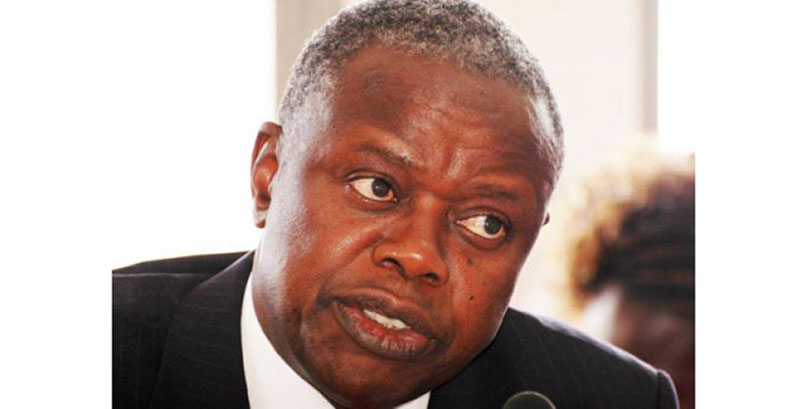Editor
SACCOs doing great, but are ‘poisoned’ by politics
The Sunrise investigation into SACCOs triggers interest in the academia, sparks debate at MUBS Economic Forum
At the 18th MUBS Economic Forum organised by Makerere University Business School (MUBS), last week, a spirited conversation ensued between the academics, business professionals, civil society activists, civil servants and students on the role of Savings and Credit Cooperative Organizations (SACCOs) in the country’s development.
The debate was sparked off by an investigative report that was conducted by a team of journalists from The Sunrise Newspaper.
The presentation was a culmination of three months of investigative reporting that was aimed at evaluating the cost-benefit impacts of tax payers investments into the financial cooperatives over the past couple of years.
With financial support from the African Centre for Media Excellence (ACME) and the Democratic Governance Facility (DGF), the investigative report has revealed, in a series of articles, that despite initial false steps that were encountered in the early stages of SACCO development, tremendous progress has been made to nurture the cooperatives as grassroots financial institutions.
Henry Lutaaya, The Sunrise Editor and team leader for the project informed the Forum, that although over 8000 SACCOs are registered, only about 450 of them are active across the country.
The project revealed however that majority of these institutions were born out of the government’s Prosperity for All campaign that was launched in 2005. And whereas most of the successful SACCOs are concentrated in Ankole region, about 300, the institutions have become major attractions for close to a million people who depend on them for credit (as members), employment and business for service providers and consultants.
Beyond providing members with loans to support small and medium size businesses, school fees loans and agricultural loans, The Sunrise found that many SACCOs in western Uganda have developed innovative products ranging from health insurance, construction of water tanks and boda boda loans.
Other SACCOs such as Butuuro People’s SACCO in Bushenyi also offer products like burial insurance packages, much to the delight of its customers.
The runaway growth of SACCOs has been made possible not only from the absence of commercial banks in most urban rural areas, but more so from the nature of products that appeal to poor largely financially excluded people. These have endeared the cooperatives to many people where they operate.
Their popularity have helped SACCOs to mobilize savings which they have combined with borrowed funds from institutions such as the Microfinance Support Centre to lend to members.
As at 31st December, 2016, 20 of Ankole’s top SACCOs have accumulated savings worth Ushs 34billion and loans valued at more than Ushs74billion.
Despite the evident successes of SACCOs, the greater potential of the financial cooperatives has been undermined by political interference.
On several occasions, The Sunrise found that President Yoweri Museveni used SACCOs as a platform for mobilizing political support and also as sources of livelihoods for supporters. Although SACCOs are supposed to be member founded, owned and governed institutions, The Sunrise discovered that political interference has turned SACCOs into target institutions for tapping ‘free’ money from government.
In different case studies that were highlighted by Lutaaya, politically linked government contributions for SACCOs failed to follow well-laid down principles of cooperatives such as the requirement for repayment and the being able to save.
The team’s efforts in finding the government’s total contributions towards SACCOs were frustrated by unwillingness by government departments to disclose the information but also by the fact that most funds originated from the President’s office.
Nonetheless, the team found that government has invested close to Ushs60 billion in capacity-building efforts of SACCOs since 2005. Direct donations mostly by the President, also run into tens of billions.
MUBS’ economists as well as technocrats from the ministry of finance agreed with the findings of the report that political donations have had an adverse effect on the growth of SACCOs.
Dr. Lawrence Kyazze, a lecturer at MUBS with a wealth of research experience on cooperatives, argued that whenever politicians have interfered with cooperatives, such as appointing SecretaryMmanagers as the case was during the Obote II regime to date, political interference has tended to lead to mismanagement and eventually collapse of the institutions.
In defense of the government
But Colin Agabalinda, the SACCO Development Manager at the Project for Financial Inclusion (PROFIRA) a seven year project run by the ministry of finance and charged with strengthening SACCOs, defended the Government’s contribution in supporting and nurturing SACCOs.
Agabalinda also regretted the use of SACCOs by politicians as campaign posts, arguing that they undermine the worthwhile contributions of technocrats in strengthening the cooperatives across the country. He revealed that the ministry is planning to devise a strategy that will seek to prevent Politicians from meddling in capacity building activities of SACCOs.
MUBS Economic Forum is steered by one of its economic lecturers and incisive Sunrise Columnist, Ramathan Ggoobi, who writes a weekly column titled; “Are You Listening Mr. President”.
The debate that ensued after The Sunrise’s investigative report, underscored the importance of SACCOs not only in mobilizing savings but also as sources of credit for millions of financially excluded Ugandans in rural areas.
MUBS principal, Prof. Wasswa Balunywa, kicked off the debate when he argued that SACCOs have much greater potential in the fight against by helping poor people to pool resources that can be used in much bigger national projects or to finance bigger businesses through the stock exchange.
But Balunywa argued against giving SACCOs subsidized credit, warning that it has the potential to disrupt the economy.
“Can we mobilize SACCOs to be agents for growth? If our policy is free market economics, then we should let it govern; but if we get money from the Government and then lend it at lower rates, then we are distorting the financial markets,” said Prof. Balunywa.
But MUBS Dean of Commerce, Dr. Isaac Nkote, argued that although uncoordinated government donations were undesirable, the media has over-emphasized it and ignored the positive contributions of technocrats in nurturing SACCOs.
In addition, Dr. Nkote called for a policy geared towards consolidating the many unsustainable SACCOs scattered across the country, if the SACCOs are to grow into more relevant institutions.
Dr. Nkote argued that in many areas, SACCOs have reached saturation point and cannot expand any further because of they are too many in a given area.
Comments


























